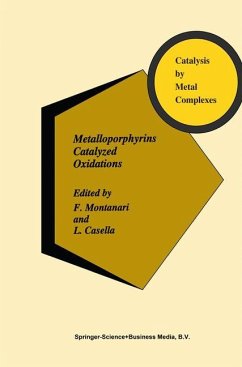Oxidative catalysis by metalloporphyrin systems occupies a prominent role in the current research in the fields of chemical and biological catalysis. Our particular interest and approach has been to collect in the same volume papers dealing with both the chemical and biological aspects of the reactivity of heme systems because of the realization that a better understanding of the complementary discipline can be extremely useful for the researchers from either field. The current progress of the research on synthetic metalloporphyrin catalysts has led to the development of several systems that are able to reproduce the heme-enzyme mediated oxygenation and oxidation reactions, at least in terms of reaction types, mechanisms and often rates. These achievements have stimulated the of creating metalloporphyrin catalysts which are both ambitious project efficient and stable enough to become competitive for large-scale industrial processes. Although this project is still far from being realized, the efforts in this direction parallel those aimed at the application of heme enzymes to chemical technologies, e. g. for the mild, selective oxidation of organics or the detoxification of pollutants. Both the two approaches will be advantageous because while the enzyme systems can achieve selectivities which are probably unattainable by synthetic catalysts, the latter can be active under experimental conditions that would readily inactivate the enzymes.








